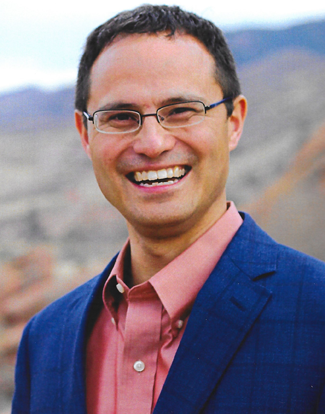At first glance, Jesus’ words to the weeping women of Jerusalem on his way to Calvary can seem strange and harsh. Today, Dr. Sri unpacks the meaning behind the eighth station of the cross. He shows us how Jesus’ response to the women demonstrates that even during his Passion, Jesus never focused on himself.
Shownotes
“
On his way to Calvary, Jesus never focused on himself.
Shownotes
“
But Jesus turning to them said, “Daughters of Jerusalem, do not weep for me, but weep for yourselves and for your children.For behold, the days are coming when they will say, ‘Blessed are the barren, and the wombs that never bore, and the breasts that never gave suck!’ Then they will begin to say to the mountains, ‘Fall on us’; and to the hills, ‘Cover us.’ For if they do this when the wood is green, what will happen when it is dry?
– Luke 23: 28-30
As we reach the climax of Lent, we come closer to reflecting on the Passion narrative of Christ. Jesus’ dramatic interaction with the weeping women of Jerusalem on his way to Calvary ( Luke 23:28-30) can initially seem abrasive and odd from our twenty-first century perspective. However, Jesus’ language is always meaningful although it may appear to be confusing at first. So what is Jesus really trying to say to these women?
Biblical Context
In his interaction with the weeping women of Jerusalem, Jesus is using apocalyptic imagery rooted in the Jewish Scriptures. This type of language was familiar to his fellow Jews.
The Greek word for “weep” (ekoptesthai) in this passage is used in other parts of the gospels. For example, the same word is used to describe those mourning the death of Jairus’ daughter ( Luke 8:52, Matthew 11:17). It’s also used when Jesus heals the widow’s son at Nain, and tells the widow to not weep ( Luke 7:11-14). In both cases, Jesus tells people not to weep because Jesus had come to raise them from the dead and he desired to comfort them.
Jesus’ response to the women of Jerusalem foreshadows the suffering the people in Jerusalem would soon face in the revolt against Rome in AD 70. He prophesied the suffering of their children’s generation who would rebel against Rome and pay the price. He knows that the sons of these women who are weeping for him, will suffer greatly and undergo much devastation. The women come to show compassion for Jesus in his own suffering, but Jesus responds in compassion for them, lamenting the pain they will have to endure.
Blessed are the Barren
Jesus says “blessed are the barren..” ( Luke 23:29) to refer to the barren women who will be spared of the affliction that those with children will not be able to avoid in the rebellion against Rome. The mention of mountains falling and the hills covering them are taken from a prophecy in the book of Hosea ( Hosea 10:8). Jesus asserts that just as the people of Samara cried out for a quick death on the day of their destruction, so will the people of Jerusalem rather die quickly rather than endure the horrible torture that Rome will inflict on Jerusalem during the revolution.
The high places of Aven, the sin of Israel,
– Hosea 10:8
shall be destroyed.
Thorn and thistle shall grow up
on their altars;
and they shall say to the mountains, Cover us,
and to the hills, Fall upon us.
Green and Dry Wood
In the Bible, fire is often an image of God’s judgement ( Isaiah 10:16-19; Jeremiah 11:16; Ezekiel 20:47, 24:9-10). In order to make a fire you need dry wood rather than green wood because green wood is moist and harder to burn. Jesus says that he is like the green wood while the Jewish revolt movement is more like the dry wood. If Jesus was crucified and punished as an innocent man who was not an actual threat to Rome (green wood), imagine what the Romans will do with the Jewish revolutionaries who intentionally threaten Rome (dry wood). Here, Jesus is foretelling the destruction of Jerusalem during this revolution and severe punishment for the sons of the women of Jerusalem.
Practical Application
- We learn from this exchange that Christ never focused on himself, even during his excruciating Passion. He always thought about the suffering of other people. He thought of the people who mocked him, and the weeping women of Jerusalem. He thought of Peter who denied him. He thought of Judas who betrayed him and he thought of the good thief on the cross.
- When we make mistakes, Jesus always looks at us with compassion. We must not be afraid to go to confession because Jesus is always ready to embrace us with tender love.
- We are called to imitate Christ when we suffer. Instead of being focused on our own feelings of sorrow, we should aim to rise above ourselves and still think about the needs of others.
Resources
- Visit Dr. Sri’s website at www.edwardsri.com and to book online events with Dr. Sri email events.edwardsri@gmail.com
- No Greater Love: A Biblical Walk Through Christ’s Passion
- Find more of Dr. Sri’s episodes at ascensionpress.com/allthingscatholic
- Ascension is pleased to offer our new and improved online bible study programs and sacramental preparation programs digitally to help you minister with flexibility. Go to ascensionpress.com to view all our offerings.

Dr. Edward Sri is a theologian, well-known Catholic speaker, and author of several best-selling books. His work with Ascension includes study programs such as A Biblical Walk Through the Mass, No Greater Love: A Biblical Walk Through Christ’s Passion and Mary: A Biblical Walk with the Blessed Mother. Several of Dr. Sri’s programs were filmed on-site in the Holy Land, and feature immersive video explorations of the sacred sites where Jesus, Mary, and the Apostles lived and died.
Dr. Sri is the host of the acclaimed Ascension podcast All Things Catholic with Dr. Edward Sri. Together with Curtis Martin, Dr. Sri is a founding leader of the Fellowship of Catholic University Students (FOCUS), of which he serves as senior vice president of Apostolic Outreach.
Dr. Sri lives with his wife Beth and their children in Colorado.






i want to do bible study